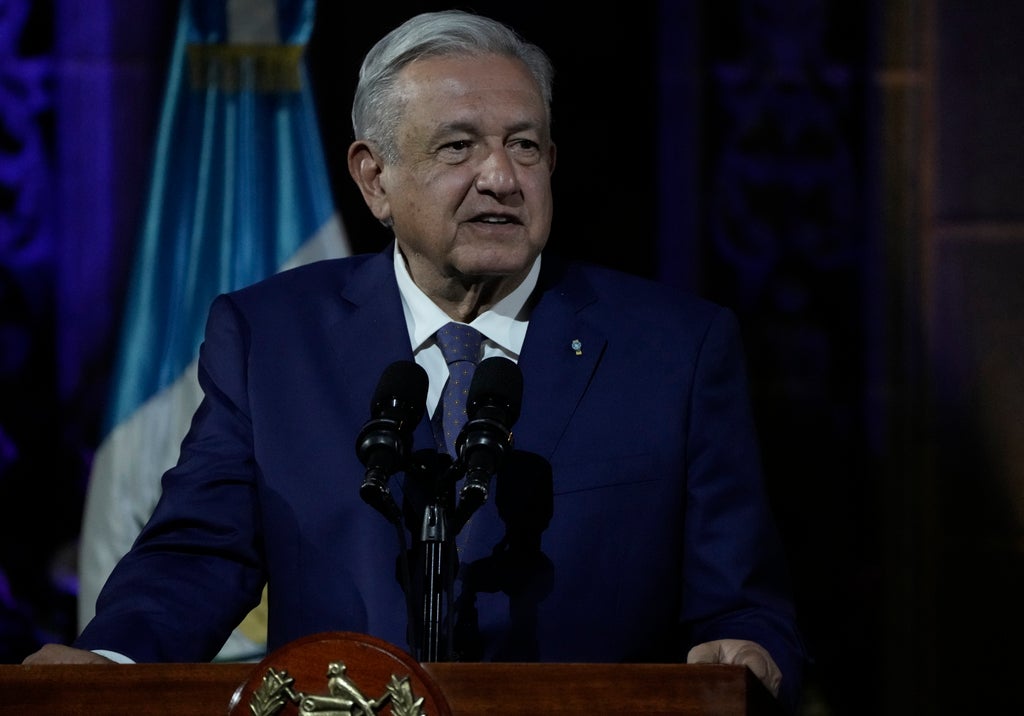
The Mexican government said Friday it has closed a limestone gravel quarry owned by a U.S. company, a move likely to add fuel to an ongoing trade dispute with the firm.
The Environment Department said Friday it closed the quarry owned by Vulcan Materials near Playa del Carmen, on the Caribbean coast. Parts of the quarry have been excavated below the water table, and the department said the mining threatened water quality and subsoil conditions.
But the timing of the move raised questions: Vulcan has been operating the quarry for around three decades, and President Andrés Manuel López Obrador had recently threatened the company.
López Obrador wants the water-filled quarry to be used as a theme park to rival the nearby XCaret park. He also wants Vulcan to build a cruise ship dock at a freight terminal it operates on the coast. He has pressured the Alabama-based aggregates company to sell the property to the government, or open a water park itself.
Vulcan issued a statement Thursday saying it “strongly believes that this action by the Mexican government is illegal."
“The Company has the necessary permits to operate and intends to vigorously pursue all lawful avenues available to it in order to protect its rights and resume normal operations,” it said.
The company's property includes several adjoining sites; some have have already been quarried, and others haven't. In late 2018 the company filed for an arbitration panel under the old North American Free Trade Agreement, after Mexico refused to allow quarrying at some of the sites.
The company said a decision is expected in the second half of 2022. The Environment Department said the company is seeking about $1.5 billion in damages.
The Mexican government originally said a tentative agreement had been reached with Vulcan Materials, and the company said it was willing to open a water park and cruise ship facility. But it has no experience at doing either, and would really just like to continue mining gravel.
López Obrador wants the gravel to use as ballast for another of his signature projects, the Maya Train, a 950-mile (1,500- kilometer) rail line that will run in a rough loop around the Yucatan Peninsula, connecting Caribbean coast resorts with archaeological sites inland.
Controversially, and with no environmental studies, the president decided to cut down a swath of low jungle between Cancun and Tulum, near the quarries, to build the train line. He has raised the possibility that the future water park could be a stop on the train line.
The project needs huge amounts of gravel ballast to spread between rail ties to stabilize them, and it also needs a seaport like the one Vulcan has to get rails, cars and other train-building materials into the jungle.
López Obrador has often used pressure and threats in a bid to get private and foreign companies to shore up his infrastructure plans and projects — state-run ports, terminals and rail lines that could become white elephants unless the private sector boosts them with real traffic.
Earlier this week, his administration announced it would force about 20% of the flights using Mexico City's International Airport to move to the Felipe Angeles terminal north of the city, — a project pushed by López Obrador that has struggled to attract flights and passengers because of its distance from the city.
Moreover, it was inaugurated before rail and road links were completed, making it hard to get to. Passengers and airlines have avoided switching to the new airport, which currently handles only about six flights per day.







